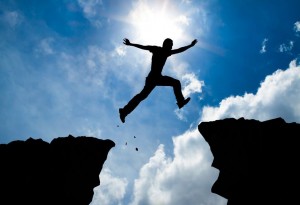 Let’s talk about judgment. Everybody has an idea of what they think this is. Some even feel that it is a virtue to try and remove judgment from our lives. “Judge not that ye be not judged,”* as if judgment is something we can function without. Hopefully, I will be able to convince you that not only can you forget about removing the vital process of judgment from your life, but that you would be wise to understand it, embrace it, and then see the whole picture masked by the illusion of a one-sided universe created in the mind. If you can do this, you will see an effective method for transcending your momentary judgments, and board a launching pad to jump into your next level of awareness.
Let’s talk about judgment. Everybody has an idea of what they think this is. Some even feel that it is a virtue to try and remove judgment from our lives. “Judge not that ye be not judged,”* as if judgment is something we can function without. Hopefully, I will be able to convince you that not only can you forget about removing the vital process of judgment from your life, but that you would be wise to understand it, embrace it, and then see the whole picture masked by the illusion of a one-sided universe created in the mind. If you can do this, you will see an effective method for transcending your momentary judgments, and board a launching pad to jump into your next level of awareness.
Try as we might, we cannot escape judgment—not our own, and not that of others. Judgment, at its most basic, is a way to categorize the world around us. The sky is up and the ground is down: this is a judgment we make unconsciously every moment. If your feet are up and your head is down, you are either doing a handstand or free-falling, both of which require your brain to be in complete awareness. This type of judgment is based on neurology, physics and language—that is, what we have decided to call something that we all experience and agree upon.
 We do it with people too, although it isn’t as clear-cut. He’s nice; she’s mean. He looks shady and dangerous; I think I’ll walk on the other side of the street. She’s only interested in money, or her looks, or whatever else our mind tells us about that person. This is a normal and necessary function; it allows us to walk through life, making decisions that could affect our very survival. These types of judgments are not based solely on absolutes, but instead on a number of factors including upbringing, past experiences and even book, newspaper or teacher learning.
We do it with people too, although it isn’t as clear-cut. He’s nice; she’s mean. He looks shady and dangerous; I think I’ll walk on the other side of the street. She’s only interested in money, or her looks, or whatever else our mind tells us about that person. This is a normal and necessary function; it allows us to walk through life, making decisions that could affect our very survival. These types of judgments are not based solely on absolutes, but instead on a number of factors including upbringing, past experiences and even book, newspaper or teacher learning.
 Events and experiences are subject to our judgments, as well. This experience was bad, that one good—again, we base these judgments on a number of factors. If you think about it, though, you’ll see that these types of judgments are purely perceptual. Were the 9/11 attacks on the Twin Towers good or bad? Well that depends on which side you are viewing it from. As horrifying as they were for most people in the western world, many in the Middle East celebrated it. And this is true of every event. From lawsuits, to fistfights, to simple descriptions of common everyday occurrences, some people will see things one way, while others see it another way.
Events and experiences are subject to our judgments, as well. This experience was bad, that one good—again, we base these judgments on a number of factors. If you think about it, though, you’ll see that these types of judgments are purely perceptual. Were the 9/11 attacks on the Twin Towers good or bad? Well that depends on which side you are viewing it from. As horrifying as they were for most people in the western world, many in the Middle East celebrated it. And this is true of every event. From lawsuits, to fistfights, to simple descriptions of common everyday occurrences, some people will see things one way, while others see it another way.
This brings up a deep philosophical question—are there absolutes when it comes to making judgments? Plenty of people will argue that there are; however, you will agree that no matter what transpires in the world, there is a group that sees it through their perspective, and another that sees it a different way. My point is this: We make judgments based on our values. They are necessary for us to navigate through life. You will never be without judgment because it is as vital to your survival as breathing is. Every conscious creature no matter where it stands on the evolutionary chain has to make judgments all the time. Is that food or is it death? Is it safe to come out of hiding? If I make this decision, how will it affect the rest of my life, or my family, or the world around me? Truth is we are judging all the time.
 But even in its necessity, our minds’ propensity to judge is not presenting us with the full reality. In actuality, there is no absolute right or wrong, good or bad—it comes down to what serves us in the moment. And this is based on our values. Predator captures prey, has a meal and lives another day—good for the predator, bad for the prey. The boyfriend or girlfriend that breaks up with you, is he or she nice or mean? Perhaps you judge them as mean in your initial assessment, but as it allows you to move on with your life and meet your future spouse…well, ha ha…I guess that can go either way, too.
But even in its necessity, our minds’ propensity to judge is not presenting us with the full reality. In actuality, there is no absolute right or wrong, good or bad—it comes down to what serves us in the moment. And this is based on our values. Predator captures prey, has a meal and lives another day—good for the predator, bad for the prey. The boyfriend or girlfriend that breaks up with you, is he or she nice or mean? Perhaps you judge them as mean in your initial assessment, but as it allows you to move on with your life and meet your future spouse…well, ha ha…I guess that can go either way, too.
Better to understand that judgment is a process of the mind, and that no event is either good or bad until we judge it. And further, if you look hard enough, you will see that all events have both advantages and disadvantages to everyone involved. This is tricky, and no doubt that everyone reading this can come up with their “absolute” examples to try and disprove what I am saying. But if you look hard enough you will find that even in those things you come up with, as with everything that has ever happened in your life which you have consequently labeled as either good or bad, has a flip side to it that gives an advantage or opportunity, along with an associated disadvantage or closed door.
 By seeking and finding how every event that you judge has the equal and opposite side to it, you will see the totality of the universe. Whether we are talking about people or experiences, by seeing the full spectrum, outside of your momentary and one-sided judgments, it allows you to make leaps in your consciousness. In fact, I am certain that we all do this all the time, and it is how we ultimately grow into our next level of awareness. Once we are able to get over the initial hurt of a breakup, and see how it is serving us to move on with our lives and into something more useful for the moment, we transcend the hurt. Who hasn’t done this? Okay, no doubt some people are slower to see than others, which, if nothing else, has helped make daytime talk shows popular; but in the big picture, we all eventually see some things in their completeness.
By seeking and finding how every event that you judge has the equal and opposite side to it, you will see the totality of the universe. Whether we are talking about people or experiences, by seeing the full spectrum, outside of your momentary and one-sided judgments, it allows you to make leaps in your consciousness. In fact, I am certain that we all do this all the time, and it is how we ultimately grow into our next level of awareness. Once we are able to get over the initial hurt of a breakup, and see how it is serving us to move on with our lives and into something more useful for the moment, we transcend the hurt. Who hasn’t done this? Okay, no doubt some people are slower to see than others, which, if nothing else, has helped make daytime talk shows popular; but in the big picture, we all eventually see some things in their completeness.
I believe that the wisest thing to do is seek the whole as quickly as possible. Not only does it allow you to shed the pains that may be keeping you from moving forward, but it also allows you to see a larger sphere of truth. Truth isn’t only present in the judgment itself—a half-truth at best—but in the full picture, including the parts our minds are concealing.
 Seek to find the whole in your experiences and you will leap into a new level of awareness and consciousness. Don’t beat yourself up for judging, though, because we need to do so for survival, and as a way to guide us into the next stage of learning. But look for the other side, no matter how hard your mind tries to resist, because I assure you it’s there. When you find it, you will have an “a-ha moment,” and you will see the magnificence of the universe open up to you briefly…and then it’s on to the next judgment.
Seek to find the whole in your experiences and you will leap into a new level of awareness and consciousness. Don’t beat yourself up for judging, though, because we need to do so for survival, and as a way to guide us into the next stage of learning. But look for the other side, no matter how hard your mind tries to resist, because I assure you it’s there. When you find it, you will have an “a-ha moment,” and you will see the magnificence of the universe open up to you briefly…and then it’s on to the next judgment.
So maybe we can stop striving to “not judge” and instead accept judging as a part of the human condition, one rooted in evolution and a necessity for our very survival. But we also do not have to become slaves to our half-truth judgments. By seeking the hidden part, the one our mind is blocking, we see the whole truth, and this allows us to move into the next stage of our own evolution.
*I realize this is a misinterpretation of an oft-misinterpreted quote, but I am merely using it to make a point.












